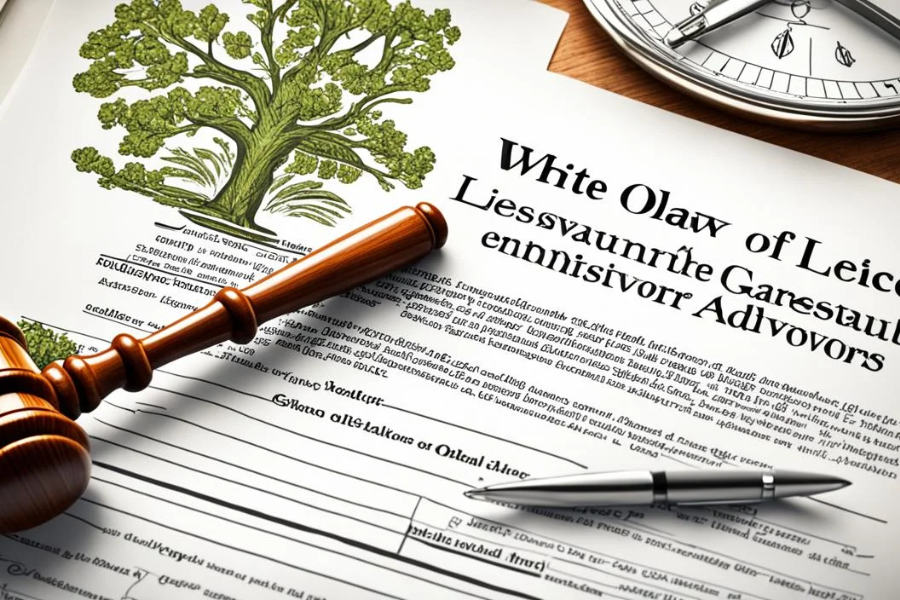
Introduction
Trust forms the cornerstone of the financial sector, especially when it involves managing retirement funds for public servants like nurses. A recent incident underscores the gravity of this trust: White Oak Global Advisors, an investment firm, is entangled in a legal dispute with the New York State Nurses Association Pension Plan (NYSNA). This case highlights allegations of mismanagement and violations of the Employee Retirement Income Security Act (ERISA). In this blog post, we will explore the lawsuit, the court’s ruling, and what this means for accountability in the financial services industry.
The Lawsuit
In 2018, the NYSNA Pension Plan, tasked with ensuring the retirement security of thousands of New York nurses, initiated legal proceedings against White Oak Global Advisors. The lawsuit raised several alarming issues, including:
- Mismanagement of Plan Assets: The NYSNA Pension Plan accused White Oak Global Advisors of neglecting responsible investment strategies, risking the financial security of the plan’s beneficiaries.
- Lack of Transparency: The lawsuit also uncovered that White Oak Global Advisors had engaged in undisclosed negotiations regarding a senior executive position, raising concerns about possible conflicts of interest.
- Breach of Fiduciary Duty: Central to the lawsuit was the concept of fiduciary duty. Under ERISA, investment advisors managing pension funds must act solely in the best interests of the beneficiaries. The NYSNA Pension Plan asserted that White Oak Global Advisors failed in this duty.
This legal battle reverberated through the financial services sector, emphasizing the necessity for stringent oversight and ethical investment practices.
Arbitration and the Court’s Ruling
After the lawsuit was filed, the matter proceeded to arbitration, an alternative dispute resolution process. The arbitrator, having evaluated the evidence presented by both parties, rendered a landmark decision favoring the NYSNA Pension Plan.
The arbitrator confirmed the initial concerns outlined in the lawsuit, concluding that White Oak Global Advisors had engaged in prohibited transactions under ERISA, notably the mismanagement of plan assets and secret negotiations that could have compromised their investment decisions.
The arbitration resulted in significant consequences for White Oak Global Advisors, which was ordered to repay over $96 million to the NYSNA Pension Plan for mismanaged assets. Additionally, the firm had to forfeit all management fees accrued during the alleged misconduct and cover the NYSNA Pension Plan’s legal costs.
Federal Court Upholds the Arbitration Decision
The NYSNA Pension Plan sought judicial confirmation of the arbitration award in federal court to add legitimacy to the arbitrator’s decision.
In 2022, Judge Lewis A. Kaplan of the U.S. District Court for the Southern District of New York issued a ruling that largely supported the arbitration award. This decision underscored the seriousness of White Oak Global Advisors’ infractions and marked a significant victory for the NYSNA Pension Plan.
The Importance of Fiduciary Duty in Investment Management
The case against White Oak Global Advisors serves as a crucial reminder of the fundamental role of fiduciary duty in investment management. ERISA provides a clear legal framework, requiring investment advisors to prioritize the beneficiaries’ best interests above all else. This fiduciary duty includes several key responsibilities:
- Prudent Investment Practices: Advisors must follow a prudent investor standard, carefully assessing investment options and mitigating risks to plan assets.
- Loyalty and Good Faith: Investment advisors are required to act exclusively in the beneficiaries’ interests, avoiding actions that could lead to personal benefit or conflicts of interest.
- Full Disclosure: Transparency is vital. Advisors must disclose all pertinent information regarding fees, investment strategies, and potential conflicts of interest.
The NYSNA Pension Plan lawsuit illustrates the dire consequences of ignoring these essential fiduciary responsibilities. White Oak Global Advisors’ alleged mismanagement and opacity directly contradicted ERISA principles, putting the financial security of countless nurses at risk.
The Broader Impact of the White Oak Case on the Financial Industry
The NYSNA Pension Plan’s successful lawsuit against White Oak Global Advisors has sent shockwaves through the financial services landscape. It has underscored the need for stronger investor protection measures and strict adherence to ethical investment standards.
Investment firms are now more acutely aware of the heightened scrutiny surrounding their actions. The legal dispute has also prompted regulators to reassess current oversight practices, potentially advocating for stricter regulations in the industry.
The White Oak case could act as a catalyst for positive transformation, fostering greater transparency, stricter enforcement of fiduciary duties, and a safer environment for investors, particularly those relying on investment advisors for retirement funds.
Ensuring Pension Funds and Beneficiary Interests are Protected
The White Oak case offers essential lessons for securing pension funds and protecting the interests of beneficiaries. Key takeaways include:
- Conducting Due Diligence: Pension plan administrators should perform thorough due diligence when selecting investment advisors. This process should involve a careful assessment of the firm’s track record, investment philosophy, and commitment to fiduciary responsibility.
- Active Oversight: Administrators must be vigilant and actively monitor the performance of their chosen investment advisors, ensuring compliance with agreed-upon investment strategies and ethical standards.
- Maintaining Open Communication: Establishing clear communication between pension plan administrators and beneficiaries is crucial for transparency and keeping beneficiaries informed about their retirement security.
The proactive stance taken by the NYSNA Pension Plan in identifying and addressing potential mismanagement serves as a model for other pension plan administrators. By emphasizing due diligence, active oversight, and open communication, pension plans can better defend against potential misconduct by investment advisors.
Steps for Holding Investment Firms Accountable
Investors who suspect that their investment advisor may be neglecting fiduciary duties have options for recourse. Here are steps they can take:
- Reviewing Investment Performance: Investors should closely monitor their investment performance. Significant deviations from expected returns or strategies may warrant further inquiry.
- Scrutinizing Fees: Understanding the fees associated with investment services is essential. Unexplained or excessively high fees can signal potential misconduct.
- Seeking Clarification: Investors should feel empowered to directly contact their investment advisor with questions regarding investment decisions and fee structures.
If concerns remain unresolved, investors can escalate issues to various entities:
- Pension Benefit Guaranty Corporation (PBGC): This federal agency protects the retirement benefits of participants in certain defined benefit pension plans.
- Securities and Exchange Commission (SEC): Investors can file a complaint with the SEC if they suspect securities fraud or ERISA violations by their investment advisor.
- Consulting an Attorney: Engaging a lawyer specializing in securities law can provide critical guidance and representation in cases of suspected wrongdoing.
The Role of Regulators in Upholding Ethical Investment Practices
Regulatory agencies are pivotal in ensuring ethical investment practices and enforcing ERISA compliance. Here are some ways regulators can contribute to a safer investment environment:
- Proactive Investigations: Regulatory bodies should take the initiative to investigate potential ERISA violations, rather than solely acting on investor complaints.
- Imposing Meaningful Sanctions: Penalties for ERISA violations need to be substantial enough to deter misconduct, possibly including increased fines, license suspensions, or criminal charges in severe cases.
- Collaboration and Information Sharing: Regulators can enhance investor protection through collaboration and information sharing among themselves.
The White Oak case highlights the critical function of regulators in preserving a fair and ethical investment atmosphere. By actively enforcing regulations, investigating suspected violations, and collaborating with industry stakeholders, regulators can help ensure the protection of investor interests.
White Oak Global Advisors’ Response to the Lawsuit
Throughout the legal proceedings, White Oak Global Advisors maintained their innocence, potentially by:
- Challenging the Allegations: They may have argued that their investment strategies were appropriate and that the undisclosed negotiations were not improper.
- Citing Their Track Record: The firm may have pointed to their historical performance to illustrate their commitment to responsible investment management.
- Disagreeing with the Settlement: White Oak Global Advisors could have expressed disagreement with the settlement terms but chose to avoid further litigation costs and reputational risks.
Without official statements from the firm, it is difficult to ascertain their exact response to the lawsuit. Nevertheless, the settlement itself suggests some level of acknowledgment of wrongdoing on their part.
Industry Reactions to the White Oak Case
The White Oak case has prompted various reactions within the investment community. Here are some potential perspectives from experts:
- Investment Law Specialists: Attorneys specializing in investment law might view the case as a landmark example of holding investment advisors accountable for breaches of fiduciary duty.
- Financial Regulators: Regulatory bodies could interpret the case as a wake-up call for the necessity of stricter oversight, advocating for enhanced investor protection measures.
- Investment Advisors: Ethical investment advisors may see the case as an affirmation of the importance of upholding fiduciary duties and prioritizing client interests.
The White Oak case has the potential to catalyze positive change in the investment sector. By fostering discussions around ethical practices and regulatory frameworks, this case can contribute to a more secure environment for investors.
The Future of ERISA Enforcement
In light of the White Oak Global Advisors lawsuit settlement, discussions about possible reforms to ERISA enforcement are likely to persist. Areas for consideration include:
- Strengthening Fiduciary Duty Standards: Further clarification and strengthening of fiduciary duties under ERISA could enhance protections for plan beneficiaries.
- Increasing Resources for Regulatory Bodies: Agencies like the SEC may require more resources to effectively monitor investment advisors and investigate potential violations.
- Enhancing Whistleblower Protections: Strengthening protections for whistleblowers reporting suspected misconduct could encourage more individuals to come forward.
By implementing reforms, policymakers can work toward a more robust ERISA enforcement framework, ultimately securing the retirement futures of millions of Americans.
Consequences for White Oak Global Advisors Beyond the Settlement
While the financial settlement marks a considerable setback for White Oak Global Advisors, they may face additional repercussions, including:
- Reputational Damage: The lawsuit and subsequent ruling can severely tarnish the firm’s reputation, potentially impacting client retention and new business acquisition.
- Increased Regulatory Scrutiny: Following the legal issues, regulatory agencies may impose heightened scrutiny on White Oak’s future operations, prompting closer monitoring of their investment practices.
- Legal Precedents: The outcome of the NYSNA Pension Plan lawsuit could set significant legal precedents, affecting how future cases are handled in relation to fiduciary duty violations.
The far-reaching consequences of this case underscore the importance of ethical conduct in the investment sector.
Conclusion
The White Oak Global Advisors case is a significant chapter in the ongoing discourse about trust and accountability in investment management. It highlights the critical importance of fiduciary duties under ERISA and serves as a warning to investment firms about the potential consequences of neglecting these obligations.
As we move forward, it is imperative for investors, regulators, and financial professionals to foster a culture of transparency and accountability, ensuring that the interests of beneficiaries remain paramount. Only by working together can we safeguard the future of retirement security for all individuals relying on sound investment management.
Facts:
- Background of the Case: The NYSNA Pension Plan, which manages retirement funds for New York nurses, initiated legal action against White Oak Global Advisors in 2018 over mismanagement and fiduciary duty violations.
- Allegations: The lawsuit included claims of mismanagement of plan assets, lack of transparency in negotiations, and a breach of fiduciary duty as mandated by ERISA.
- Arbitration Outcome: An arbitrator ruled in favor of the NYSNA Pension Plan, ordering White Oak to repay over $96 million and cover legal costs, while forfeiting management fees.
- Court Ruling: The U.S. District Court for the Southern District of New York upheld the arbitration decision in 2022, reinforcing the seriousness of White Oak’s violations.
- Fiduciary Duty: Under ERISA, investment advisors are legally required to act in the best interest of their clients, including practicing prudent investment strategies and maintaining transparency.
- Industry Impact: The case has prompted increased scrutiny within the financial services sector, advocating for stronger regulatory measures and investor protections.
- White Oak’s Response: Although the firm maintained its innocence, the settlement suggests a tacit acknowledgment of wrongdoing.
FAQs:
1. What is the White Oak Global Advisors case about?
The case involves a lawsuit filed by the NYSNA Pension Plan against White Oak Global Advisors for alleged mismanagement of pension assets and violations of fiduciary duty under ERISA.
2. What were the main allegations against White Oak?
The allegations included mismanagement of plan assets, lack of transparency in negotiations, and failure to uphold fiduciary responsibilities to prioritize beneficiaries’ interests.
3. What was the outcome of the arbitration?
The arbitration ruled in favor of the NYSNA Pension Plan, ordering White Oak to repay over $96 million for mismanaged assets and cover legal costs while forfeiting all management fees during the alleged misconduct.
4. How did the federal court respond to the arbitration ruling?
The U.S. District Court upheld the arbitration award, emphasizing the severity of White Oak’s violations and supporting the decision in favor of the NYSNA Pension Plan.
5. Why is fiduciary duty important in investment management?
Fiduciary duty requires investment advisors to act solely in the best interests of their clients, ensuring responsible management of assets and transparency regarding fees and strategies.
6. What impact does this case have on the financial industry?
The case has highlighted the need for stricter regulations and ethical standards in the financial services sector, encouraging better practices to protect investors, especially those relying on retirement funds.
7. How can investors protect themselves against potential misconduct by investment advisors?
Investors should conduct thorough due diligence, actively monitor their investment performance, scrutinize fees, and communicate openly with their advisors. If issues arise, they can escalate concerns to regulatory bodies or consult legal counsel.

